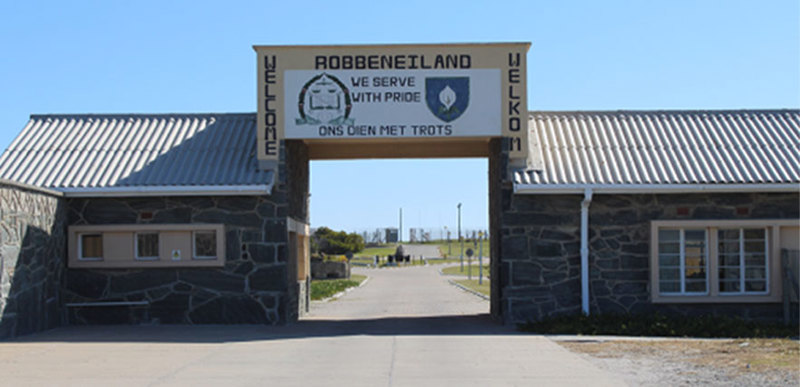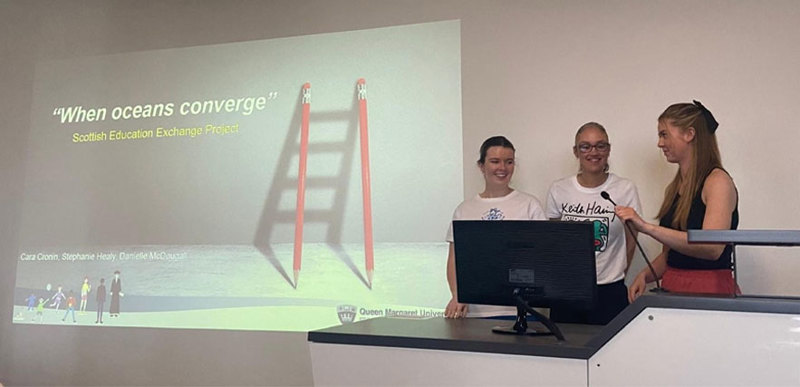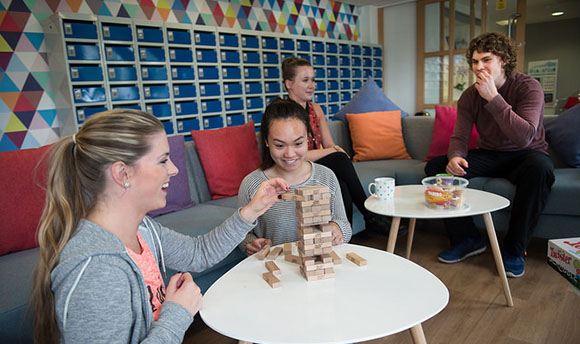Cape Town, South Africa
The trip to South Africa as part of this Scottish Education Exchange Project has been such a valuable experience as part of our learning and development in the field of occupational therapy (OT). Spending time immersed in a community-focused health initiative can be a powerful catalyst for rethinking what it means to care, to heal, and to empower.
This experience offered more than just professional insights - it reshaped perspectives on occupational therapy, health promotion, and the role of community in driving meaningful change. We have been privileged to collaborate with the students and lecturers in the University of the Western Cape (UWC) and also be guided throughout the journey by our lecturers Elvin Williams, Linda Renton and Joanna Beveridge.
We hope that the connections and relationships built throughout this project will continue to foster mutual learning, inspire future collaborations, and strengthen a shared commitment to socially responsive, community-driven occupational therapy.
Upon arriving in Cape Town, we had a set itinerary of cultural exposure and interactive learning we wanted to experience. Before delving into our work within the community and clinical settings we were able to build our cultural awareness of the many deep routed inequalities South Africa faces, particularly the class divide created by the apartheid system which still effects local communities to this day.
We began this delve into South Africa's cultural history by visiting Robben Island which offered a powerful insight into South Africa's apartheid legacy and the resilience of those who opposed it. The sharing of lived experience by an ex political prisoner in this visit not only restored a voice to a marginalised group but also transformed a personal narrative into inspiration for societal change, which really resonated with our work as acting as agents of change.

After this we kicked off our community work by visiting a local community, named Fisantekraal. Here we were able to learn from the OT students and OTs working here on the projects they are conducting and the aims they hope to achieve following an assets-based community development approach (ABCD).
On top of visiting the community, we had the great opportunity to visit Stellenbosch University's Faculty of Medicine and Health Sciences in partnership with Tygerberg Hospital. Here, we met the Head of the Child Psychiatry Unit at Tygerberg Hospital, Dr Anusha Lachman, who shared her perspective on holistic healthcare that begins in the community, and with a focus on preventing and managing children's mental health in a world where many inequalities exist.
We also collaborated with the OT students from UWC in their classes, having the opportunity to hear some of their final year projects. Here we gave a presentation on our reflections from the week and shard our insights into OT practice and education in the UK context.

Below is a summary of our learning and key take away points:
- Community as a Catalyst for Change
One of the most profound takeaways was the realisation that community development is not just a strategy - it’s a movement. By harnessing local strengths and fostering collective action, communities can address deep rooted issues like poverty, unemployment, and inequality. This approach shifts the narrative from “helping” to empowering, where transformation is driven from within. - Rethinking Health: From Individuals to Populations
Traditionally, health care has focused on treating individuals. But this experience challenged that model, advocating instead for a population based approach. Health promotion and prevention, especially when rooted in the social determinants of health, emerge as powerful tools. It’s not just about fixing what’s broken; it’s about creating environments where people can thrive. - A Holistic Lens on Youth Mental Health
Dr. Anusha Lachman’s insights into child and adolescent mental health were particularly impactful. Her approach emphasised the interconnectedness of cognitive, emotional, environmental, and social factors. Early intervention, resilience building, and inclusive participation aren’t just best practices, but they’re essential. Occupational therapy, in this light, becomes a vehicle for addressing systemic issues like poverty and discrimination. - Walking the Walk: Immersive Community Engagement
“Walk the walk, talk the talk” is a quote and lesson that the students of UWC introduced us to while we were working with them on their placements. The meaning behind this highlight how vital it is for occupational therapists to truly be with communities, not just work in them. This was critical during immersive visits to a local library, primary school, and soup kitchen. These experiences dismantled preconceived notions and highlighted the power of authentic, relationship and occupation based engagement. Listening deeply and validating lived experiences nurtures trust and reveals the true fabric of a community. - The Weight of History
A visit to Robben Island served as a stark reminder of how historical injustices continue to shape present-day realities and frame mindsets. The lingering effects of apartheid are visible not just in policy, but in the physical and social landscapes of communities. Understanding this context is crucial for any practitioner aiming to support sustainable change. - Elevating Community Voices
Seeing first hand UWC student’s commitment to social justice, witnessing a UWC OT student at her meeting with community councillors illustrated a vital truth: that real change happens when professionals step back and allow communities to step forward. Empowering local voices and recognizing them as experts of their own experiences and bringing this to the meeting. There’s a real dedication towards social transformation through advocating for equitable health and social systems that was both respectful and transformative. - Global Lessons, Local Relevance
While the challenges in Cape Town are striking, they echo in many places across Scotland in more subtle way. This can be seen through economic inequality, housing instability, and unemployment that is on the rise in Scotland and the UK. This reflection calls for a global perspective on health equity, urging Ots and other health care professionals to integrate asset-based community development and innovative public health strategies into their work.
Conclusion: A Shift in Perspective
This journey was more than a professional development opportunity. It was a transformative experience. It expanded the role of occupational therapy from individual treatment to systemic, community driven change.
The lessons learned here are not confined to one place or just the OT profession. They are globally relevant, deeply human, and urgently needed. We hope to carry the lessons we have learnt throughout this trip regarding the necessity in addressing barriers children face holistically, the value in a community development-based approach and the importance of OTs acting as facilitators to empower children and their families in our future careers as OT practitioners.







